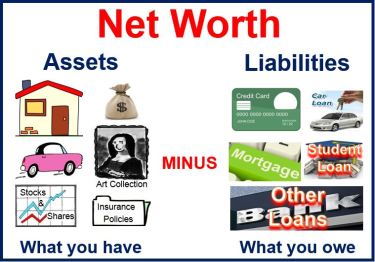Well, Don’t JUST save.
Hello everyone! Happy Pre-weekend! lol…well, think of pre-wedding pics, today is Thursday, a “pre” to the weekend…Ahaha! So this is a continuation of my last Sunday rant of September 30th, and today is October 18th? I really need to get my blogging act together. 😦
Don’t save. Don’t JUST save. Which do you prefer? Well, personally I think they mean the same thing. We have all been bombarded by the “need to save” message. From our parents, friends, books, banks (saving account), social media, apps, financial programs and so many more, the general advice everywhere is to cultivate a savings culture or habit. And so a lot of us hope that we can save our way into becoming wealthy or financially free. But the truth is often told halfway, especially when it comes to money abi? When you and I look at our monthly paycheck, bills we have to pay and everything in between, we often get distressed. I have often wondered if just saving alone can bring the wealth I desire. Many times, the distress leaves us so discouraged that we just give up and spend our money. After all, you live only once. Better to enjoy this money now than be trying to save it and then die in the process when you have not even enjoyed anything. In fact, just work hard and play hard. lol
Well, one of the lessons that has quite sunk in recently for me is this statement: Don’t save. Maybe I have mentioned it here before. Saving is a trap that keeps you in a scarcity thinking. Just think about it. Saving makes you count your pennies. Saving makes you feel as though you have a long way to go and you could or may never get there. Saving makes it very easy to get discouraged and give up. Instead I want you to start changing your thinking from “saving” to “investing“. Believe me, I wish I knew what I know now some 5 years ago. My financial life would have been a lot more different. Everywhere you have “saving” or “save” written in your life, please change it to “investing” or “invest”. Instead of opening a savings account, open an investment account. Instead of “saving” 20% or whatever percent you choose of your salary every month, write down in your budget “invest 20%”. Make “investing” a bill you pay every month. Erase “saving” from your life and replace it with “investing”.
It is radical but it works. You know what that does? Investing makes you think about possibilities, abundance. It makes you search. It makes your ears open to opportunities. You are not just hearing but you are listening. You are interested. Your eyes are open. You want to know more. You want to learn. Your see the world with a different perspective. People see things that are dead. You see dead things that can bring value. You get my gist?
Now, don’t go rushing throwing away your money into every form of investment that comes by you. Knowledge is key here and we will discuss more on that later. Here is what I want you to know: You are loosing money when you keep it in a savings account. Why? Because the interest rates on a savings account in most cases is far lower than the inflation rate. So? It means that the value of your money is dropping everyday as long as the interest rate remains lower than inflation. Therefore, the value of #5000 in your account today is way lower than what it was last week and the interest your #5000 has earned has not helped you make up for that loss in value. So where should you keep your money? Investment accounts. They offer rates that are higher than the ongoing inflation rate. It means your money is not just sitting pretty but is at least increasing its value against the loss in the economy.
Where to start? Money Market Funds are a good place to start. Money market fund is an open-ended mutual fund that deals in short-term discount securities such as treasury notes, bank bills and promissory notes. Ok, I won’t bug you with the technical jargon. Just know that they are a safe way of saving investing your money and at the same time, easy to liquidate should you need cash for life emergencies. They offer interest rates that are much higher than your regular savings account, the inflation rate and you can count on the returns. This way, that 20% that you would usually “save” should just be transferred directly to your money market account where it goes to earn value.
How do I get started? If you are in Nigeria, many banks and insurance companies offer money market fund accounts that you can open within seconds. You can ask your bank if they offer any investment options such as Money Market Fund account. Just make sure they don’t trick you into something else…lol
I wish I knew this all along. I would not have multiplied savings account everywhere…lol…it would have been just one money market account. Anyways, as they say, It’s never too late to start again.
I hope I made some sense today. Feel free to ask questions or leave a comment. We are all learning. Here’s a sweet little video for good measure. Happy weekend!

